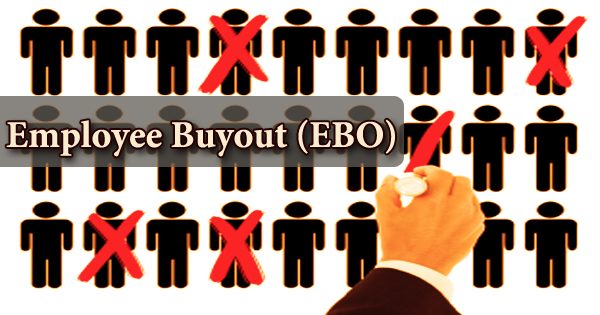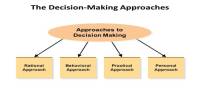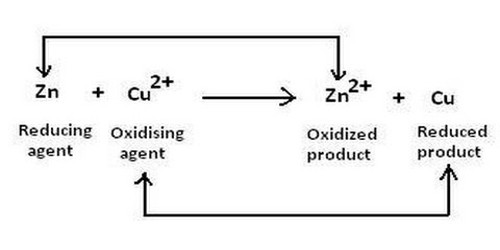An employee buyout (EBO) is a cost-cutting and layoff-avoidance tactic employed by companies to prevent layoffs. It occurs when a company provides a voluntary severance package to a group of employees. Benefits and salary are generally included in the package for a set length of time. On the off chance that the package is acknowledged, the worker should leave the association. An EBO may likewise allude to a rebuilding procedure where workers purchase a larger part stake in their own firm.
An EBO is a contract between an employer and an employee that allows the employee to terminate their employment relationship in return for compensation. The employee’s employment is still in jeopardy if they refuse the severance package. Employee buyouts are typically provided when a firm is on the verge of layoffs. This kind of rebuilding is an organization takeover by its laborers. In one or the other model, EBOs are regularly utilized when organizations are in monetary pain. The moral scaling down of the work pool through representative buyouts permits the organization to alleviate some monetary pressure and conceivably stop as well as keep away from the deficiency of occupations.
Employees who are offered severance through an EBO must weigh the value of the payouts against their overall career prospects. Even if a series of buyouts is better to layoffs for employees, determining whether or not to accept an offer can be challenging. Severance money, perks, pension and stock options, as well as outplacement, are typically included in a buyout package. The parts included may contrast between bundles. There is the likely that on the off chance that they decrease a representative buyout extends from a business that their employment opportunity may ultimately be wiped out through scaling back with less-liberal severance.
EBOs typically entail a downsizing of corporate personal. It is carried out when the board provides the option to acquire a majority ownership percentage to a select group of workers. When an employee accepts a buyout to quit a job, they are often compensated with several weeks’ income as well as perhaps extra benefits such as ongoing insurance, pension contributions, or other perks. In exchange for the buyout, the firm providing it can reduce payroll or free up jobs in the corporation to restructure.
In case workers are thinking about purchasing out their organization, the cycle can be testing and tedious to some extent since it necessitates that representatives agree to pool their resources for purchase a greater part stake in their organization from proprietorship. A standard buyout package includes four weeks’ worth of compensation, plus an extra week for each year of work with the firm. Additional incentives are frequently given, either to increase the value of the buyout to attract more employees to take it or to express gratitude for the employee’s tenure with the firm.
Employee buyouts (EBOs) can also refer to when workers acquire a majority interest in the firm they work for. When an employee is given a buyout, the design of the buyout includes a shared benefit aspect. Employee buyouts are utilized to diminish worker headcount and, in this way, pay costs, the expense of advantages, and any commitments by the organization to retirement plans. The worker will need to get as liberal of a buyout as could be expected, while the organization is offering bundles fully intent on having the offers being acknowledged by the employees.
Forms of Employee Buyouts (EBOs) –
- Voluntary Severance: Non-essential staff are often offered a voluntary severance payment. It is used to persuade workers to quit a company willingly in order to save money and create way for new hires or to reduce the labor force.
- Corporate Restructuring: When management and employees negotiate and purchase an entire company by taking on more debt, this is referred to as an employee buyout (also known as a leveraged buyout). Buyouts are a way of turning around financially distressed firms or managing a change of control.
EBO offers are normally made to insignificant staff, however more established representatives who are moving toward retirement age are oftentimes drawn nearer if the objective is to unite the position or not fill it by and large. Both the employer and the employee have an interest in evaluating the offer to see if it offers good value to the employee. Some of the reasons why companies opt to give employee buyouts are listed below:
- The cost of labor is reduced when an employee voluntarily leaves an organization.
- An employee buyout also reduces costs through benefits and retirement plans.
- Employee buyouts can potentially stop or delay layoffs.
- Reduces the labor force in a nicer, more ethical way.
- Reduces overall financial distress by eliminating costs.
If a firm has a pension plan, however, management must evaluate the cost savings from near-retirement salaries against the yearly pension amount owed to each employee. Employees must evaluate a variety of variables while assessing an EBO, including their career prospects and aspirations. Some of those considerations include:
- For near-retirees, would the severance from the buyout bridge the period between termination and the eligibility period for Social Security benefits?
- Is the severance pay the same as your current salary? If not, can you live off the amount?
- It may be more difficult for older employees to obtain new employment. As a result, any offer should be sufficient to pay living expenses during the job search.
- Would a buyout payment be able to fund a new education, career, or retraining?
- Would a buyout allow you to start your own business? And would the severance amount cover the business startup costs?
- How will you account for earned vacation time or other personal leave, and will you be compensated for those days?
- Will the company continue to contribute to the retirement plan? If so, for how long?
- What method will be used to pay the severance? Payments over time are less valuable than lump sums, especially if the employer is in danger of going bankrupt.
To allure representatives, a common buyout bundle is organized to contain liberal remuneration. Since a buyout regularly sums to what could be compared to at least one months of installments for the representative being purchased out, it gives a superb chance to future arranging. If an employee is wanting to start a new chapter in their life or change careers, receiving a buyout from a firm may be thrilling. The money gained through a buyout, on the other hand, is likely to be spent quickly.
Buyouts may involve various types of compensation and perks in addition to monetary considerations. There are no restrictions on what a firm may provide as part of a buyout if they believe it would improve the package’s appeal and raise the likelihood of a successful deal. An employee buyout for a small business usually focuses on the selling of the company’s assets, but a buyout for a bigger corporation could be for a subsidiary or division.
Information Sources:
















